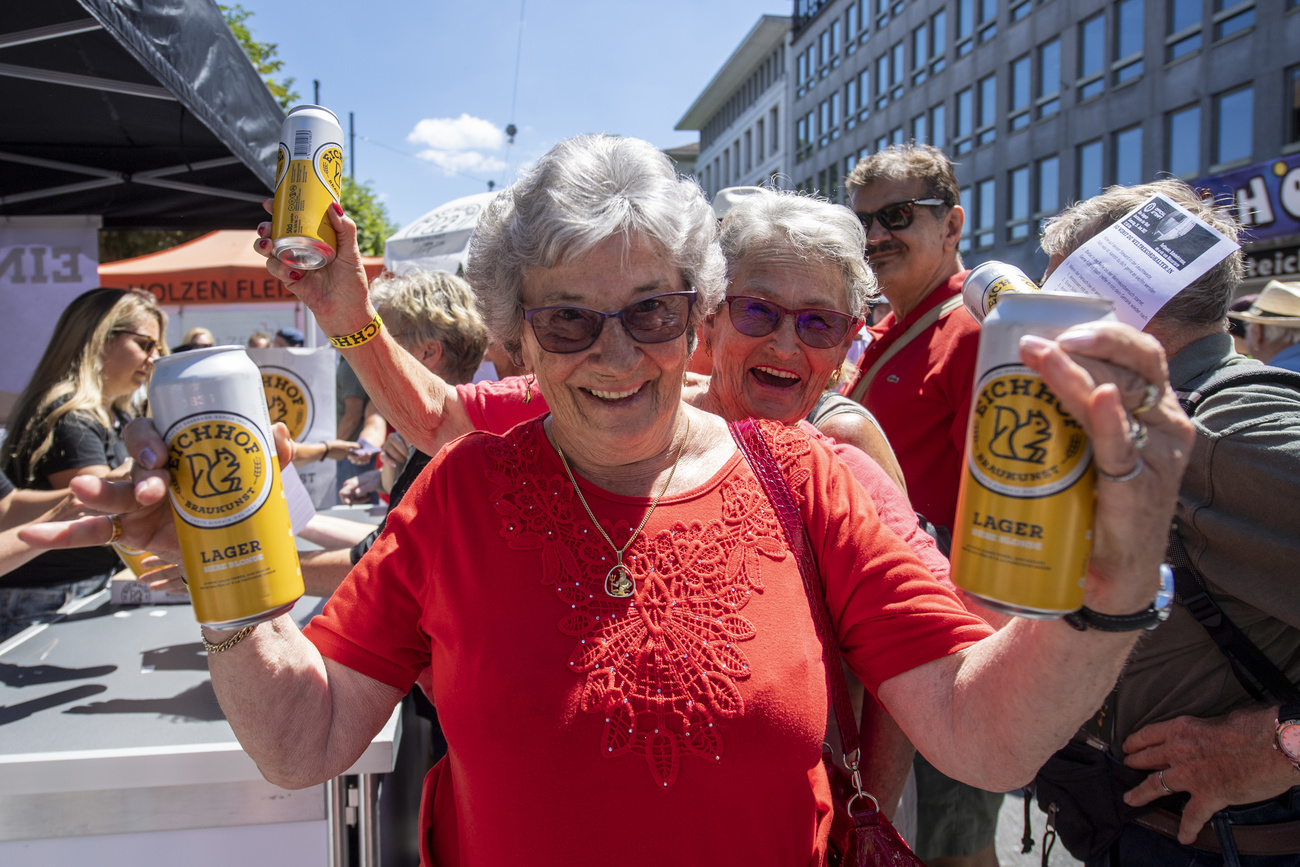
Finland remains the happiest country in the world; Switzerland ranks 13th

Finland remains the happiest country in the world for the eighth year running, according to the annual happiness report produced under the aegis of the United Nations and published on Thursday. Switzerland is 13th, while the United States has its lowest ever ranking.
+ Get the most important news from Switzerland in your inbox
The US has fallen to 24th place, their worst score since the report was first published in 2012, when they were ranked 11th, their highest position. Sharing meals “is strongly linked to well-being”, write the authors, noting that “the number of people dining alone in the US has increased by 53% over the past two decades”.
By 2023, one in four Americans said they had eaten all their meals alone the night before, according to the report. “The growing number of people eating alone is one of the reasons for the decline in well-being in the US,” it points out.
The US is also one of the few countries to have seen an increase in “deaths by despair” (suicide or as a result of excessive consumption of alcohol or drugs) at a time when such deaths are falling in the majority of countries.
Nordic countries in the lead
The report analyses the behaviour of populations throughout the world in 2022-2024. It is therefore not linked to the upheavals caused by Donald Trump’s return to the US presidency.
The Nordic countries all remain ranked among the 10 happiest, with Denmark, Iceland and Sweden hot on the heels of Finland, which has slightly widened the gap with Denmark, its runner-up.
Meanwhile, Costa Rica and Mexico entered the top 10 for the first time, in sixth and tenth place respectively.

More
Swiss generally very satisfied with life, but young people struggle
France is only 33rd, well behind Switzerland (13th), Belgium (14th) and Canada (18th).
Afghanistan, in the grip of a humanitarian catastrophe since the Taliban regained control in 2021, has once again been ranked as the unhappiest country in the world.
The happiness ranking is based on a three-year average of personal assessments of life satisfaction, as well as GDP per capita, social support, healthy life expectancy, freedom, generosity and corruption.
Translated from German by DeepL/jdp
This news story has been written and carefully fact-checked by an external editorial team. At SWI swissinfo.ch we select the most relevant news for an international audience and use automatic translation tools such as DeepL to translate it into English. Providing you with automatically translated news gives us the time to write more in-depth articles.
If you want to know more about how we work, have a look here, if you want to learn more about how we use technology, click here, and if you have feedback on this news story please write to english@swissinfo.ch.

In compliance with the JTI standards
More: SWI swissinfo.ch certified by the Journalism Trust Initiative































You can find an overview of ongoing debates with our journalists here . Please join us!
If you want to start a conversation about a topic raised in this article or want to report factual errors, email us at english@swissinfo.ch.